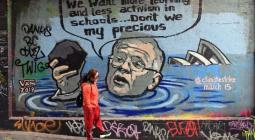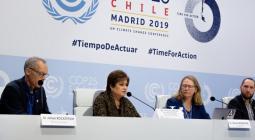INDIGENOUS PEOPLES CALL ON STATES TO #FixArticle6
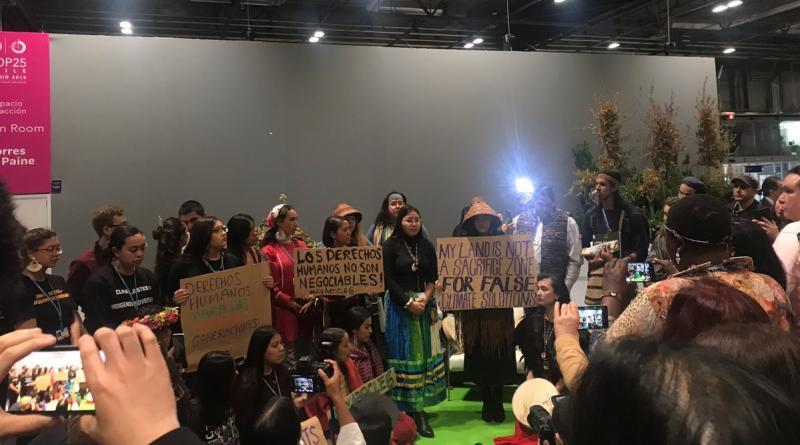
WHAT: Press Conference
WHEN: Saturday 7th December 2019, 1pm
WHERE: Mocha Press Conference Room, Zone 4 IFEMA
WHO: International Indigenous Peoples’ Forum on Climate Change
Madrid, Spain: While State governments continue the 4-year negotiation on Article 6, Indigenous Peoples from around the world remind negotiators that the lives of Indigenous Peoples are at-risk, and urge the inclusion of human rights language, including a specific reference to the Rights of Indigenous Peoples in Article 6 of the Paris Agreement.
Indigenous speakers from around the world will join a press conference to share their stories and encourage negotiators to include the rights of Indigenous Peoples, and specifically protect collective rights that are crucial to the customary governance and traditional life-ways of Indigenous Peoples.
Indigenous Peoples are and have always been leaders in climate justice. In order to continue this crucial work, for the sake of not only the lives of Indigenous Peoples, but of all life on earth, Article 6 must ensure safeguards for the rights of Indigenous Peoples.
The rights of Indigenous Peoples must be included in the Article 6 conversation: “When we come here today to fight against the exclusion of our people’s recognition, our people’s power, our people’s right to self-governance in Article 6, we are saying that we matter, because it is our communities that are leading the fight.” - Ruth Miller (Athabascan Indigenous Youth, SustainUS)
Inclusion of Indigenous Rights in Article 6 is the minimum requirement of a just COP25.
SPEAKERS:
TUNGA RAI ( REPRESENTING ASIAN REGION)
My name is Tunga Rai. I belong to the Rai Indigenous Peoples of Nepal. I am the National Coordinator of Nepal Federation of Indigenous Nationalities (NEFIN), representing Indigenous Peoples of Nepal COP25 in Madrid,
At COP 25, and other UN bodies, I communicate the Indigenous values that my parents and grand-parents instilled in me when I was very young. These values, including the stories of our Ancestors, inspires me to combine my Indigenous values ,with my academic training in anthropology, to both advocate for Indigenous Peoples to claim their rights back home and also in the UNFCCC.
Photo Credit: David Tong
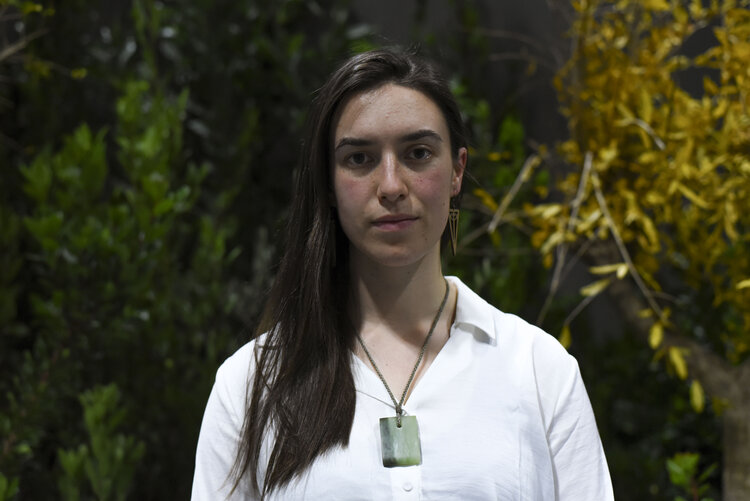
NAKIA RANDLE (REPRESENTING PACIFIC REGION)
(Ngati Kahu, Aotearoa New Zealand)
Te Ara Whatu
Email: nakiarandle@gmail.com
Telefono Móvil | Téléphone Mobile | Mobile Number:
Whatsapp: +64 27 328 5417
Instagram: @nakiarandle
EN: Nakia is from the far north of the North Island of Aotearoa New Zealand.
She is a graduate in environmental law and is attending COP with the Te Ara Whatu delegation of indigenous youth from the Pacific.
Photo Credit: Nicole Semitara Hunt
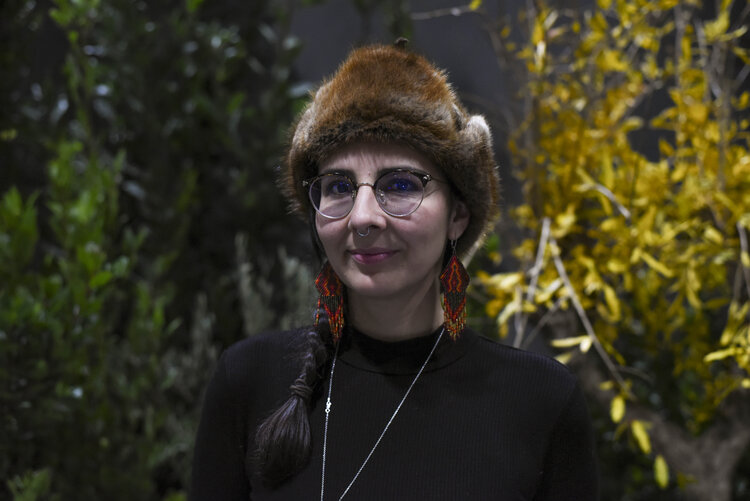
ERIEL DERANGER ( REPRESENTING NORTH AMERICAN REGION)
(Athabasca Chipewyan First Nation)
Indigenous Climate Action
Email: eriel@indigenousclimateaction.com
Telefono Móvil | Téléphone Mobile | Mobile Number: +1 7807775104
Whatsapp: +1 7807775104
Twitter: @ErielTD
Photo Credit: Nicole Semitara Hunt
EN: Eriel Tchekwie Deranger is a Dënesųłiné woman (ts'ékui), member of the Athabasca Chipewyan First Nation and mother of two, coming from a family of Indigenous rights advocates fighting for the recognition, sovereignty and autonomy of their Indigenous lands and territory in what is now known as Treaty 8, Canada.
Deranger is the Executive Director and co-founder of Indigenous Climate Action (ICA) - an Indigenous-led climate justice organization working to empower communities and inspire Indigenous-led climate solutions. ICA develops educational multi-media and contemporary climate change resources for Indigenous communities, amplifies our stories and supports indigenous rights to sovereignty and self-determination.
Prior to ICA, Deranger worked with her First Nation to build out one of the largest inter-sectional keep it in the ground campaigns: The international Indigenous Tar Sands campaign - challenging the expansion of Alberta’s Tar Sands. As part of her role she brought international recognition to issues in her territory with celebrities like Leonardo DiCaprio, Darren Aronofsky, Neil Young, Daryl Hannah, James Cameron and many others, drawing attention across the globe.
Deranger has written for the Guardian, Yellowhead Institute, The National Observer, Red Pepper Magazine, been featured in documentary films including Elemental (2012), interviewed for national and international media outlets including Democracy Now!, Aboriginal Peoples Television Network (APTN), and CBC.
Beyond this work Deranger is recognized for her role in creating the Global UN Indigenous Youth Caucus; participating in the UN Indigenous Forum on Climate Change; lobbying government officials in Canada, the US, the UK and the EU; developing the Tar Sands Healing Walk; spring boarding one of the first Indigenous rights-based divest movements; and working to develop and lead mass mobilizations highlighting the mass inequity of the impacts the fossil fuel industry and climate change on the rights of Indigenous peoples.
Eriel sits on the board of WWF Canada, Bioneers and the UK Tar Sands Network with a focus on building intersectional dialogue between Indigenous rights and other social justice movements nationally and internationally.
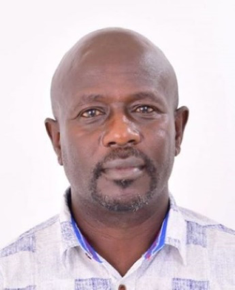
Kimaren ole Riamit ( REPRESENTING AFRICAN REGION)
Kimaeren Ole Riamit is an Indigenous peoples’ leader from the Pastoralists Maasai Community in southern Kenya. His is the Founder-Director of Indigenous Livelihoods Enhancement Partners (ILEPA) a non-for-profit community based Indigenous Peoples organization advocating for indigenous peoples rights across levels.
Kimaren has extensive exposure and experience in engaging with and influencing international processes and mechanism of interests to Indigenous peoples, in which he has represented the global indigenous Peoples’ movement in various capacities.
Kimaren is a holder of a Master of Arts degree in Development Anthropology, a Post Graduate Diploma in Project Planning and Management, and a BSc. degree in Foods, Nutrition and Dietetics. He has served as a researcher and field instructor for international Field study programs undertaken in East Africa by two international University.
Ole Riamit is interested in the Anthropology of Development, human rights including indigenous peoples’ rights, and governance. Specifically, how property, rights to land and natural resources, decision making-arrangement interact to safeguard or impede rights to basic indigenous peoples’ survival.
MODERATOR:
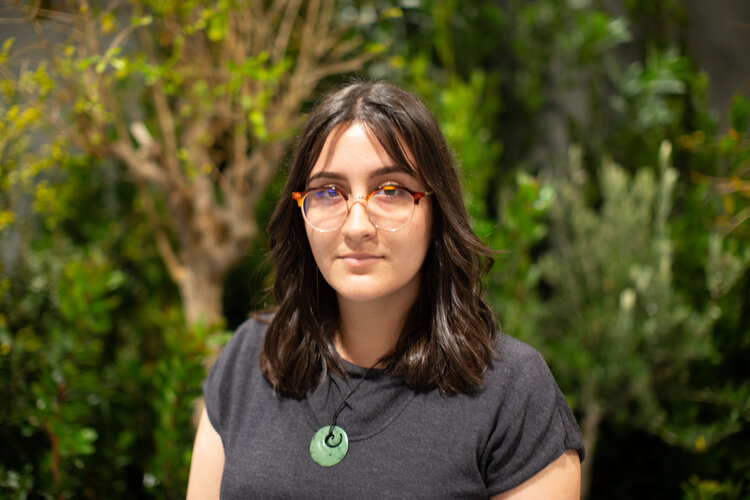
KERA SHERWOOD-O’REGAN (Kāi Tahu -Aotearoa New Zealand)
Email: kera.oregan@gmail.com
Telefono Móvil | Téléphone Mobile | Mobile Number: +64 21 0410932
Whatsapp: +64 21 0410932
Twitter: @KeraSauR Instagram: @kera.oregan
Photo Credit: David Tong
7 December 2019

